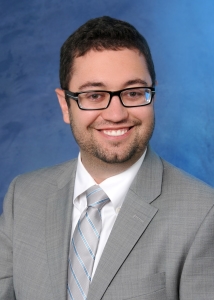By Jordan Ferguson, Best Best & Krieger LLP.
It happens every day. A group e-mail is received by public officials. The recipients are disclosed. Hitting “reply all” in this instance is common practice — especially when the response involves matters related to all e-mailed parties.
What happens, though, when the subject of this e-mail is best served for discussion in the public eye? A single click of the mouse, replying to all of the chain, could violate one of the public’s most basic guarantees under California law: The right to attend and participate in the meetings of its legislative bodies.
Housing commissioners in one California county received a subtle reminder from prosecutors earlier this year about violating the Brown Act’s open meeting requirement when e-mail responses using the “reply all” function created an online meeting — a conversation far outside the public’s scope.
The emails in question focused on the appointment of three commissioners, including one who presented a potential conflict of interest. Twelve of the 13 affordable housing commissioners received an e-mail from the Ventura authority’s executive director in which he asked, “What would you like me to do?” and closed with, “I appreciate your response.”
Seven commissioners replied. Their e-mails included personal opinions on the proposed appointments and the action the executive director should take. This exchange included two “reply to all” responses in which the commissioners’ views and recommendations were sent to the other board members who received the e-mail.
Prosecutors determined the actions constituted a serial meeting — a poll of the body’s majority to reach a consensus outside a public meeting. Generally, the Brown Act requires the discussions and decisions of government agencies occur within a publicly noticed meeting. Certain circumstances allow legislative bodies to convene in a closed session. In this instance, however, that was not the case.
The e-mails at issue created two potential pitfalls. These are hazards any public official may run into in the digitalized world — issues they should be aware of and painstakingly aim to avoid.
Right from the start, the initial e-mail could have created a “hub and spoke” serial meeting. Here, the sender polled a commission majority outside of a meeting. The opening e-mail acted as a hub of information with each reply creating a spoke in a chain of e-mails that amount to a serial meeting. With the addition of reply all responses, not only was a majority of the body pulled into the discussion, but they also became privy to the thought process of the others.
The initial e-mail, with or without the reply all responses, violated the Brown Act by creating a private collective debate. These discussions, between the body’s majority, should have taken place at a publicly noticed meeting. It is a mistake, however, that is increasingly easy to make in the world of digital communications.
Brown Act violations arising from a chain of e-mails can similarly be found in comment threads on blogs, news sites and social media posts, or any other digital space where a public official’s thoughts on an issue of importance to their agency is shared publicly. A public official sharing their opinions online and through social media allows for the possibility of another member of the public entity to chime in and gauge a legislative body consensus — ultimately creating a non-publicized meeting and violating California law. Even though online discussions — say comments on a blog or newspaper article — are open to all members of the public, they are not a properly advertised forum for discussion per the Brown Act. In these cases, it isn’t the openness of conversation that is at issue, it is the public awareness that such a discussion could or will take place.
In the digital world, awareness is key. It is imperative that public officials are cognizant of the Brown Act’s opening meeting condition and how it pertains to all forms of communication, especially electronic forms.
[divider] [/divider]
 Jordan Ferguson is an associate in Best Best & Krieger’s Los Angeles office. A member of the Municipal Law and Special Districts practice groups, Ferguson is well-versed in the issues of emerging technologies and the sharing economy, conflicts of interest, free speech regulations, privacy rights, the Brown Act, public safety regulations and elections law matters. He can be reached at Jordan.Ferguson@bbklaw.com.
Jordan Ferguson is an associate in Best Best & Krieger’s Los Angeles office. A member of the Municipal Law and Special Districts practice groups, Ferguson is well-versed in the issues of emerging technologies and the sharing economy, conflicts of interest, free speech regulations, privacy rights, the Brown Act, public safety regulations and elections law matters. He can be reached at Jordan.Ferguson@bbklaw.com.





